Rachel Held Evans's Blog, page 45
March 25, 2013
"Washed and Waiting," Chapter 3: Loneliness and Longing
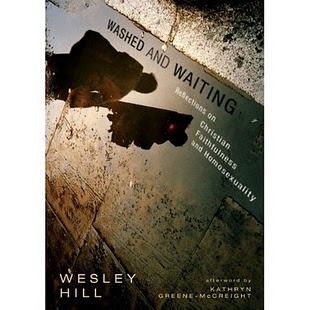
Today
we pick up our yearlong series on Sexuality and The Church with a discussion on
Chapter 2 of Wesley Hill’s short book, Washed and Waiting: Reflections on Christian Faithfulness
and Homosexuality. We will wrap up our discussion next week,
with Chapter 3 and the book’s conclusion.
Wesley’s
book is meant to both complement and contrast Justin Lee’s book, Torn: Rescuing the Gospel From the
Gays-vs-Christians Debate, which
served as a starting point for our discussion. Both Justin and Wesley are gay,
but whereas Justin concluded that a relationship with another man could be
blessed by God, Wesley has chosen celibacy. I picked these two books
because I think Justin and Wesley represent the very best in civil, gracious,
and loving disagreement on this issue…which for them is not a mere issue, but a
deeply personal journey with deeply personal implications. I highly recommend
reading these books together.
You can
check out every post in our series thus far here.
***
Henri Nouwen and "The Beautiful Incision"
In the interlude preceding Chapter
2, Wesley highlights the life and writings of Henri Nouwen, who, (I had never
realized this before reading Wesley’s book), was a celibate gay Christian.
Wesley writes that he can relate to
Nouwen, who “wrestled intensely with loneliness, persistent cravings for
affection and attention, immobilizing fears of rejection, and a restless desire
to find a home where he could feel safe and cared for.” (87)
Wesley discovered Nouwen during a
particularly difficult time in his life. “I felt isolated, tormented, and,
worse, numb to whatever love, affection, and support my friends and church
family were trying to extend to me. Realizing that Nouwen had struggled with
the same longings and fears I was experiencing—and that he had struggled with
them all his life—I felt simultaneously that a weight was lifted off my
shoulders and that I had a long road still ahead of me with no end in sight” (87).
Nouwen, who later in life confessed
that he had known since he was six years old that he was attracted to members
of his own sex, would, in lectures and books, “speak of the strength he gained
from living in community, then drive to a friend’s house, wake him up at two in
the morning, and, sobbing, ask to be held.” (p. 89, quoting Philip Yancey).
Writes Wesley: “I know well these
desires and wounds because, like Nouwen, I have lived with them. I am now
living with them.” He concludes:
The wound of loneliness is like the
Grand Canyon, Nouwen wrote, ‘a deep incision on the surface of our existence
which has become an inexhaustible source of beauty and self-understanding.’ With
this statement, Nouwen gave voice to the truth of the gospel that, under God’s
severe mercy, evil may be turned to good, pain and suffering may be redeemed
and transformed, beauty may spring from the ashes. ‘And we know that in all
things God works for the good of those who love him, who have been called
according to his purpose’ (Romans 8:28). Through the incision—though not
beautiful in and of itself—we may glimpse the beauty of God…Nearly two thousand
years ago, Good Friday gave way to Easter Sunday, and at the end of history,
when Jesus appears, death will give way to resurrection on a cosmic scale and
the old creation will be freed from its bondage to decay as the new is ushered
in. On that day there will be no more loneliness. The wounds will be healed. (p.
92-93)
Chapter 2 – The End of Loneliness
I confess this chapter was difficult
to read. Tears gathered in my eyes several times as Wesley, with remarkable
candor, describes the loneliness that comes with choosing celibacy. In fact,
I’m not sure I’ve read a more incisive and touching explanation for why human
beings crave intimacy than this one.
“The homosexual Christian who
chooses celibacy continually, to one degree or another, it seems to me, finds
himself or herself longing for something relationally that remains tragically,
tantalizingly just out of reach,” writes Wesley. He shares an email he wrote to
a friend during a time in his life when he was feeling especially lonely:
“The love of God is better than any
human love. Yes, that’s true, but that doesn’t change the fact that I feel---in
the deepest parts of who I am—that I am wired for human love. I want to be
married. And the longing isn’t mainly for sex (since sex with a woman seems
impossible at this point); it is mainly for the day-to-day, small kind of
intimacy where you wake up next to a person you’ve pledged your life to, and
then you brush your teeth together, you read a book int eh same room without
necessarily talking to each other, you share each other’s small joys and
heartaches…One of my married friends told me she delights to wake up in the
night and feel her husband’s foot just a few inches from hers in bed. It is the
loss of that small kind of intimacy in my life that feels devastating. And, of
course, this ‘small intimacy’ is precious because it represents the ‘bigger
intimacy’ of the covenantal union between two lives.” (105)
Wesley says that he, like most
people, longs for the experience of mutual desire—the feeling of knowing and
loving someone, and being known and loved by that person in return, at an
intimate, unconditional level.
He quotes Rowan Williams who has
said, “To desire my joy is to desire the joy of the one I desire: my search for
enjoyment through the…presence of another is a longing to be enjoyed…[Romantic]
partners ‘admire’ in each other ‘the lineaments of gratified desire.’ We are
pleased because we are pleasing.”
The question, posed by both Wesely and Rowan
Williams is, how can gay and lesbian believers come to know this kind of love,
this awakening of joy and delight, which is the experience of mutual desire?
Wesley runs through several options,
including same-sex relationships (which he believes are a violation of God’s
design), mixed orientation marriages (which he believes may work in some cases,
but probably not his own), and celibacy.
Those who find themselves in the
position of being single and celibate can find comfort and hope in a
relationship with a God who longs for intimacy with his creation, Wesley says.
“I often wonder if coming to
understand and believe that God does, indeed desire us,” he writes, “and that
we are invited to return his desire might be the ‘remedy’ in some ultimate
sense, for the loneliness and craving for love that I and other homosexual
Christians experience on a regular basis. Leaving through the Bible, I find
dozens of indications that God loves his people in precisely the way that
Williams describes, and I ask myself: Could this be the end of my quest?” (p.
107)
Wesley cites passages like Hosea
11:8-9, Ezekiel 16:8, Zephaniah 3:17, , Romans 5:5, Ephesians 1:3-8, and 1
Peter 1:8, and concludes that “in some profound sense, this love of
God—expressed in his yearning and blessing and experienced in our hearts—must
spell the end of longing and loneliness for the homosexual Christian. If there
is a ‘remedy’ for loneliness, surely this must be it. In the solitude of our
celibacy, God’s desiring us, God’s wanting us, is enough. The love of God is
more valuable than any human relationship…And yet we ache. The desire of God is
sufficient to heal the ache, but still we pine, and wonder.” (108)
But Wesley also acknowledges the
importance of community. Quoting a professor of his, he observes that “God is
the one who created humans to want and need relationships, to crave human
companionship, to want to be desired by other humans. God doesn’t want anyone
to try to redirect their desire for community to himself…Instead, I think God
wants people to experience his love through their experience of human
community—specifically through the Church.” (p. 110)
Wesley notes that, historically,
most commitments to celibacy are made within the context of a
community—typically monastic communities. There is a need, he says, for
Christians to come alongside their celibate brothers and sisters and walk with
them through this loneliness, as friends and partners. And there is a need, he
says, for gay Christians to open themselves up to such relationships, which can
be hard when they may tend to distance themselves, in unhealthy ways, from
friends of the same sex out of fear of where those friendships might become
inappropriate or uncomfortable. (I had never thought about how hard that would
be; Wesley does a good job offering insight and encouragement in this regard.)
“Perhaps one of the main challenges
of living faithfully before God as a gay Christian is to believe, really
believe, that God in Christ can make up for our sacrifice of homosexual partnership
not simply with his own desire and yearning for us but with his desire and
yearning mediated to us through the human faces and arms of those who are our
fellow believers.” (p. 112)
Questions for Discussion
1. Have you ever experienced, or are experiencing, the kind of loneliness Wesley describes in this chapter? How do you process that loneliness? What helps and what hurts?
2. This is my biggest question as we consider both Justin and Wesley’s testimonies: Do you think it is possible to fully support both Justin in his pursuit of a partnership/marriage to another man, and Wesley, in his decision based on his convictions to remain celibate? Or does the full support of one somehow diminish the support of the other? (I’d like to pose this question to Justin and Wesley, at some point. Would love to hear their perspectives on it.)
3. Obviously, hanging over the discussion this week is the Supreme Court’s upcoming decision regarding the constitutionality of Proposition 8. (Because someone is bound to ask, I’ve made it pretty clear in the past that I support gay marriage as a civil right, and would hold this position regardless of whether I believed such marriages should be blessed by my church.) I guess my question, with that in mind, is this: After reading such an intimate account of the challenges that come with a life of celibacy, is it fair for those of us who are not in the position to make such a decision ourselves to demand that others choose that life?
I’d love to know your thoughts on
all of this. Please stay civil in the comment section. Unkind comments, or comments
that distract us from constructive dialog, will be deleted.
Be sure to check out all the posts in our series on Sexuality and The Church.



March 24, 2013
Sunday Superlatives 3/24/13 (plus a big Kindle/Nook sale!)
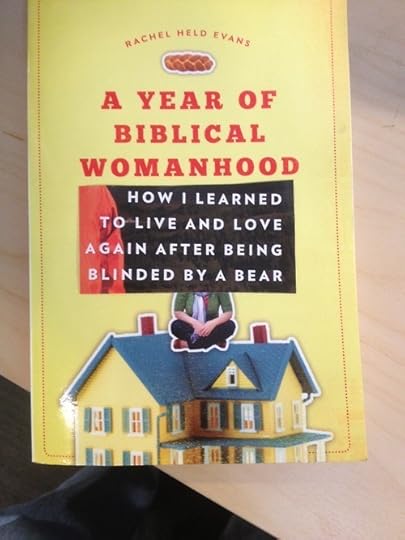
After discovering and sharing
“Blinded by a Bear” this week, the curator offered to include A Year of
Biblical Womanhood among the titles. Um, yes; so funny!
Speaking of A Year of
Biblical Womanhood, today you can find it on both Kindle and Nook for just
$2.99. I never know how long these deals
will last, so if you’ve been waiting for a bargain, now’s the time.
Now on to Superlatives...
Around the Blogosphere…
Funniest:
Dog Photobombs Every Single Photo in Craigslist Apartment Listing
Wisest:
Brene Brown with “Public Shaming
is a Better Example of ‘If it feels good - do it’ than Teen Pregnancy”
“Shame diminishes our
capacity for empathy. Shame corrodes the
very part of us that believes we are capable of change. You
can’t depend on empathetic connection to make a campaign effective, then crush
the needed empathy with shame.”
Best Advice:
Kristen Rosser with “Thoughts
on 25 Years of Marriage”
“Respect is part of love, and
both partners need it. Put-downs and
personal attacks have always be off-limits in our marriage. Passion in a
long-term marriage is more like banked coals than like a bonfire. It glows just as hot deep down, but isn't as
showy on the surface. The way we've kept
the fires banked so they never go out, is to never stop flirting. We tried gender
roles. Then we climbed out of the boxes
and tried just being ourselves and supporting one another in being who we
are. That worked much better. Believing
the best of one another helps us be our best to one another. Trying to see
through one another's eyes really helps.
So does really listening.”
Best Sentence:
Ed Cyzewski in
“Unity as Intellectual Uniformity is Impossible” with:
“I
have lived as if perfecting my theology is all that Jesus required of me.”
Best Graph:
Dan with “Understanding
Trolls”
Best Post on Sex…Like, Ever:
Jamie the Very Worst Missionary with “Sex”
“It took me a lot of years and a lot of
conversations with God (and with people who know more about God than me) to
understand that everything I believed about my own sexuality was built on two
huge lies. The first comes from our culture, and it tells us that sex
outside of marriage isn't a big deal. The second is from the Church, and it
tells us that sex outside of marriage is the biggest deal of all the
deals ever. One allowed me to give it away freely, convinced I would carry
no burden. The other forced me to carry a spirit crushing load. Both are
complete crap.”
Best News:
Patty Griffin Announces New Album: American Kid
Best Analysis:
Ed Cyzewski (Again!) with
“Here Comes a Confusing Article About Radical Discipleship”
“However, there is a world of difference when you compare Shane Claiborn, the
new monastics, and an inner city church like Circle of Hope in Philadelphia to
pastors like Platt, Idleman, Chan, and, heavens to Murgatroyd, Steven Furtick.”
[Matthew Anderson offers a
response here.]
Most Insightful:
Christena Cleveland with
“Listening Well as a Person of Privilege”
“Privileged
and oppressed folks can and should collaborate to solve problems.God
knows I’m grateful for the privileged people who have utilized their
problem-solving skills to create a more just and inclusive space for people
like me. But problem-solving should never precede solidarity. Even Jesus the Great Problem-Solver spent 30
years standing in the ditch of humanity before he flexed his problem-solving
muscles and performed his first miracle.”
Most Relatable:
Micah J. Murray with “When We Criticize The Church”
“We are an entire generation with the broken pieces of
our religion scattered on the floor around us. Slowly, carefully, we are trying
to separate the truth from the lies. Sometimes with exuberant hope, at other
times with tears and swear words. When we see our brothers and sisters being
sold that same package deal that we bought, we raise our voices in protest. Not
because we don’t love the Church, but because we love it too much to see it
used as a platform for peddling a package deal of truth mixed with lies. So when
we criticize the Church, please, please listen.
Most Prophetic:
Carolyn Custis James at the
Huffington Post with “Pink Smoke and Protestant Popes”
“GainingMost Beautiful:
ground against all forms of abuse --
including abuse of power, sexual, spiritual and emotional abuse, domestic
violence, as well as sex-trafficking and pornography -- will be sporadic until
women are routinely part of church leadership.
This is Our City with "Forging the Future with the Tip of a Pen"
Most Informative:
Peter Enns with “How I Would Have Plotted Out the Bible Series on the History
Channel”
Most Thoughtful:
Dan Brennan with “Steubenville:
Body-Parts Sexuality, Friendship, and Vulnerable Moments”
“I would like to
suggest body-parts sexuality is a powerful paradigm in the evangelical world.
We hear this from evangelicals if we were to hang out in their communities for
a while: the grown-up version of “boys will be boys.” We would also hear from many of these
same evangelicals that men and women can’t be close friends because men are
biologically hardwired to have sex when they are in close proximity to women. This is deeply
puzzling given the fact that evangelicals believe Jesus never had sex.”
Most Needed:
Thomas Turner at Relevant
Magazine with “Stop Taking Jeremiah 29:11 Out of Context”
“This
verse, quoted to countless individuals who are struggling with vocation or
discerning God’s will, is not written to individuals at all. This passage is
written to a whole group of people—an entire nation. For all the grammarians
out there, the “you” in Jeremiah 29:11 isn’t singular, it’s plural. And you
don’t have to be a Hebrew scholar to realize that “one” versus “many” is a big
difference.”
Most Encouraging:
International Justice Mission
Wins Landmark Sex Trafficking Conviction in India
Post of the Week:
Ann Voskamp with “After Steubenville: What Our Sons Need To Know About Manhood”
“Son. When the prevailing thinking is boys
will be boys — girls will be garbage. And
that is never the heart of God.”
Announcement of the Week:
Pope Francis to spend Holy Thursday washing the feet of prisoners
Quote of the Week:
Rob Bell with:
“I am for marriage. I am for fidelity. I am for love,
whether it's a man and woman, a woman and a woman, a man and a man. I think the
ship has sailed and I think the church needs -- I think this is the world we
are living in and we need to affirm people wherever they are."
Number of the Week:
Washington Post in “Gay Marriage Support Hits New High” with:
“Among young adults age 18 toWomen of Valor…
29, support for gay marriage is at 81 percent”
Kakenya Ntaiya: A Girl Who
Demanded School
Jen Hatmaker: “And Then the
Conference Uninvited Me To Speak”
Tracey Rouse : “A Leader and
a Woman”
Most Popular Post:
No More Silence: An interview with Boz Tchividjian
“The next time someone tells you that reporting
suspected abuse within the Christian community will “hurt the cause of Christ”,
tell them that we are attempting to rob God of worship when we leave criminal
behavior to fester and grow in the darkness of silence. "
You can read all the posts in
our series on abuse and the Church here.
***
So, what caught your eyeonline this week? What’s happening on your blog?
Don’t forget about the
Kindle and Nook deals!
Oh, and if you haven't already, you gotta check out American Jesus Madness this year. I've had a great time trash-talking my friends Pete Enns, Scot McKnight, and Stephanie Drury...not to mention Rob Bell's missing glasses. (David Miller provided a nice image of my complete dominance over said glasses.) I think Stephanie has me beat this round, though. Thanks to Zach Hunt for reminding us not to take ourselves too seriously.



Abuse & The Church Wrap-Up: The Stories We Didn’t Tell (and a list of resources)
(Note:
Look for Sunday Superlatives later this evening!)
“Come to Me, all who are weary and heavy-laden, and I
will give you rest.”
- Matthew 11:28
As
we come to the end of our weeklong series, “Into the Light: A Series on Abuse
and the Church,” I feel weary and heavy-laden, in need of rest. I am struck by
a special longing for Easter, which, believe it or not, is just around the
corner.
I
am also struck with a feeling of incompleteness. We covered a lot of ground
this week, and we told a lot of stories, but there are still many stories we
didn’t tell—stories of human trafficking and sex slavery, stories of men abused
by women, stories of redemption and reconciliation, stories of abuse on the
mission field. Each story is unique, and each story is sacred. And so I hope
the series has inspired you treat your own story, and the stories of others, as
such. May we all be inspired to speak with more truth, more conviction, more care,
and more bravery about this difficult topic, so that our awareness doesn’t end
here, but continues to grow, until the day when all things are reconciled to
the source of love, and the story of abuse is only a memory.
I’ll
conclude the series with a list of resources and links to posts from others
this week. Please feel free to add to the list in the comment section.
the Light: A Series on Abuse and the Church
The Scar of Sexual Abuse by Mary DeMuth
No More Silence: An Interview with Boz Tchividjian of G.R.A.C.E.
"Today's Journey": Thoughts on Healing from Grace Biskie
Proper Treatment for Sexual Abuse: 7 Questions to Consider
Dianna Anderson on Rape Culture and Victim Blaming
"Don't Talk About It": Reflections on Spiritual Abuse by Kristen Rosser
Out of the Shadows: Getting Help Inside and Outside the Church
"They tried to 'fix' me with fists and cricket bats"
The abusive teachings of Michael and Debi Pearl
Spiritual Abuse Awareness SynchroblogAdditional Resources / Domestic ViolenceNational Domestic Abuse Hotline - 1−800−799−SAFE(7233)
Signs of Abuse and Abusive Relationships
Peace and Safety in the Christian Home
“Seven Reasons Women Stay in Abusive Relationships and How to Defeat Each One of Them”
Restored: Ending Violence Against Women
Abuse/Dating Violence Statistics
Additional Resources / Abuse in a Christian Environment"When the Child Abuser Has a Bible" by Victor Veith and Boz Tchividjian
Abuse in the Church DVD Curriculum
"Saving Bathsheba" by Rachel Marie Stone
Suffer the Children: Developing Effective Church Policies on Child Maltreatment
"Fear in Fanda" - Sexual Abuse at a Missionary Boarding School
Diane Langberg on Sexual Abuse Within Christian Organizations
"Sexual Abuse on the Mission Field"
"10 Ways to Spot Spiritual Abuse" and "What to Do if You Are in a Spiritual Abusive Situation” by Mary DeMuth
Top 10 Signs of a Spiritually Abusive Church – Part 1& Part 2 by Elizabeth Esther
“Tips for Recovering from a Spiritually Abusive Church” and “Tips for “Moving On” from an abusive church experience” by Elizabeth Esther
Wellspring Retreat & Resource Center
Boundaries: When to Say YES, When to Say NO, To Take Control of Your Life by Cloud and Townsend
The Subtle Power of Spiritual Abuse: Recognizing and Escaping Spiritual Manipulation and False Spiritual Authority Within the Church by David Johnson and Jeff VanVonderen
Additional Resources / Sexual AbuseThin Places by Mary DeMuth
The Wounded Heart: Hope for Adult Victims of Child Sexual Abuse by Dan B. Allender
Diane Langberg on The Spiritual Impact of Abuse
Child Sexual Abuse: Startling Statistics
Additional Resources/ Counseling & TherapyGlobal Trauma Recovery Institute
The Seattle School of Theology and Psychology
"3 Signs of Repentance Every Church Leader Should Know" by Dr. Philip Monroe
"What Forgiveness Isn't" by Denise George
Additional Resources / Child Abuse Childhelp National Child Abuse Hotline
"Blow the Whistle on Child Abuse"
Child Welfare Information Gateway
Suffer the Children: Developing Effective Church Policies on Child Maltreatment
Elizabeth Esther on Michael and Debi Pearl
A Silence of Mockingbirdsby Karen Spears Zacharias
Court Appointed Special Advocates
Additional Resources / BullyingThe Bully Project (The documentary film, “Bully,” is especially eye-opening)
“Understanding Bullying” – Psychology Today
Sticks and Stones: Defeating the Culture of Bullying and Rediscovering the Power of Character and Empathy by Emily Bazelon
***
This is obviously an incomplete list. So please feel free to use the comment section to help me fill in the gaps with your own favorite resources on abuse


March 23, 2013
The abusive teachings of Michael and Debi Pearl

This is the tenth post of our weeklong series, Into the Light: A Series on Abuse and the Church, which features the stories of abuse survivors, along with insights from professional counselors, legal experts, and church leaders about how to better prepare Christians to prevent and respond to abuse. Through the course of the series, we will be discussing child abuse, spiritual abuse, sexual violence and abuse, domestic violence, and bullying. Check out the previous posts here.
Before we conclude the series tomorrow morning with a list of resources and some final thoughts, I wanted to share a previous post of mine in which I issue a warning about the abusive teachings of Michael and Debi Pearl. I think it's important to speak bluntly and directly about this because the Pearl books remain inexplicably popular within many evangelical churches, but their teachings are incredibly damaging. So if your church is considering doing a study around Debi Pearl's Created to Be His Helpmeet or any of the Pearls' "No Greater Joy" material, please consider passing this post along to the leadership.
***
Lydia Schatz was seven
years old when her parents beat her to death with a quarter-inch plastic tubing for
apparently mispronouncing a word. The couple, who were later prosecuted, claimed to be following the “biblical” parenting techniques advocated by Michael and Debi
Pearl.
Lydia is one of three children whose death has been linked to the teachings of Michael and Debi Pearl.
Through their “No Greater Joy Ministries,” Michael and Debi Pearl teach a method of child discipline that centers around “breaking a child’s will.” The Pearls advocate using switches on babies and young as six months, and spanking older children with belts and plumbing tubes. Their book, To Train Up a Child has sold hundreds of thousands of copies and, under the guise of “biblical discipline,” encourages parents to beat their children into submission, withhold food, and hose them down outside when they soil themselves.
Here’s a quote from to give you an idea of their approach:
The Pearls’ teachings have been linked to the deaths of Sean Paddock, Lydia Schatz, and Hana Grace-Rose Williams.Never reward delayed obedience by reversing the sentence. And, unless all else fails, don’t drag him to the place of cleansing. Part of his training is to come submissively. However, if you are just beginning to institute training on an already rebellious child, who runs from discipline and is too incoherent to listen, then use whatever force is necessary to bring him to bay. If you have to sit on him to spank him then do not hesitate. And hold him there until he is surrendered. Prove that you are bigger, tougher, more patiently enduring and are unmoved by his wailing. Defeat him totally. Accept no conditions for surrender. No compromise. You are to rule over him as a benevolent sovereign. Your word is final.
My dear friend, and brave woman of valor, Elizabeth Esther has written extensively about the Pearls' abusive tactics.
But it’s not just children who suffer from “No Greater Joys” ministries. When I was conducting research for A Year of Biblical Womanhood, I read Debi Pearl’s popular book, Created to Be His Helpmeet…which I threw across the room a total of seven times.
The writing is awful, the biblical exegesis deplorable, but what troubles me the most is that the book reads like a manual for developing abused wife syndrome. Citing New Testament passages that instruct wives to submit to their husbands, Pearl advocates a system in which godly wives live as complete subordinates to their husbands, with no “equal rights.”
At one point, Pearl encourages a young mother whose husband routinely beat her and threatened to kill her with a kitchen knife to stop “blabbing about his sins” and win him back by showing him more respect
Sudden aggressive outbursts are part of what it means to be a man, according to Pearl. “The wisest way to handle the aggressive husband is by not taking personal offense,” she advises. “Avoid provoking him.”
In an appendix at the end of the book, Michael Pearl weighs in and writes:
“Has your husband reviled you and threatened you? You are exhorted to respond as Jesus did. When he was reviled and threatened, he suffered by committing himself to a higher judge who is righteous. You must commit yourself to the one who placed you under your husband’s command. Your husband will answer to God, and you must answer to God for how you respond to your husband, even when he causes you to suffer.Just as we are to obey government in every ordinance, and servants are to obey their masters, even the ones who are abusive and surly, ‘likewise, ye wives, be in subjection to your own husbands’…You can freely call your husband ‘lord’ when you know that you are addressing the one who put him in charge and asked you to suffer at your husband’s hands just as our Lord suffered at the hands of unjust authorities…When you endure evil and railing without returning it, you receive a blessing, not just as a martyr, but as one who worships God.”
It seems the Pearls believe that a wife should submit to her husband, even if it means her death…and presumably, the death of her children.
[The narrative of the "enduring wife" shows up in other Christian literature in more subtle ways. I wish I'd had the time to write more about this. Perhaps at a later time.]
This is wrong. I cannot state it strongly enough: No act of abuse is justified by God, and no one is called to endure abuse out of a commitment to the Bible or to Jesus.
Why bring this to your attention? Because the Pearls are inexplicably popular in certain Christian circles, and abuse in the name of God must be spoken against.
If your church is considering using books by the Pearls as part of its curriculum, please say something. If you see friends or family employing their tactics, confront them. This is not simply a matter of different parenting methods or relationship styles—like Sears vs. Ezzo, or cloth diapers vs. disposable diapers, or complementarianism vs. egalitarianism—it’s a matter of abuse.
There can be no more beatings, no more deaths…especially not in the name of Christ.
***
Be sure to check out Elizabeth Esther's blog for more on this topic. See also "Why Not Train a Child?" and Libby Anne's excellent series on "Created to Be His Helpmeet." And check out my thoughts on submission in context as part of our Mutuality series.
Tomorrow morning we will wrap up the series with a list of resources and some final thoughts.



March 22, 2013
"They tried to 'fix' me with fists and cricket bats"

This is the ninth post of our weeklong
series, Into the Light: A Series on Abuse and the Church, which
features the stories of abuse survivors, along with insights from professional
counselors, legal experts, and church leaders about how to better prepare
Christians to prevent and respond to abuse. Through the course of the
series, we will be discussing child abuse, spiritual abuse, sexual violence and
abuse, domestic violence, and bullying. Check
out the previous posts here.
Sadly, one of the most prevalent forms of
abuse occurs every day in the hallways and playgrounds of our schools in the
form of bullying. Really, we could devote a whole series to this topic, and perhaps
at some point we will. But for our purposes this week, I am delighted to
introduce you to writer Glen Retief. Glen is a South African writer living in
central Pennsylvania. He writes fiction, memoir, literary journalism, and
personal essays, and he teaches at the Writers’ Institute at Susquehanna
University. Glen’s memoir, The Jack Bank, won
a Lambda Literary Award for Gay Memoir. Glen’s story not only highlights
the ways in which he was bullied as a child, but also the homophobia that
fueled that bullying, which tragically, is too often allowed to fester in a
Christian environment. I hope you will learn as much from his story as I did.
***
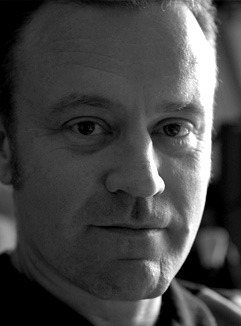
I grew up in South Africa
in the 1980s, in a time and place almost unimaginably different from most
American readers’ homes. My father worked as a conservation biologist in
the Kruger National Park. Impala kept our lawn mowed. Riding our
bikes around the village, we had to keep an eye out for hippo, buffalo, and
lions. The village shop, like most businesses in the country, was
reserved for whites only: Swazi maids had to show the cashier a letter from a
white “madam” if they were to be allowed to buy groceries.
Apart from apartheid,
Christianity—or at least the Afrikaner Calvinist version of it—defined the
country’s national identity. My family was Catholic, but in Moral
Preparedness class on Fridays in my government elementary school, I was taught
that Earth was 4000 years old and that the first humans were literally Adam and
Eve. I was notified that Beatles records had Satanic chants encoded on
them backwards, that Soviet satellites were broadcasting atheist messages on
microwave frequencies that corresponded to those of the human brain, and that
the Pope was probably the anti-Christ referenced in Revelation. As you
can imagine, there were some interesting lunch table conversations at home
prompted by the question, “What did you learn at school today, Glennie?”
Because there were no
high schools in the immediate vicinity of our home village, at age 12 I was
sent away to a government boarding school. As in the Harry Potter books,
17-year old prefects were responsible for maintaining order in the
hallways. Unlike at Hogwarts, though, new students at my school were
subjected to humiliating, often sexual initiation rituals. Also, the
preferred method of maintaining discipline was corporal punishment with a
cricket bat, blows of which were colloquially known as “jacks.” While
official rules forbade this practice, teachers and administrators turned a
blind eye in the belief that it promoted order and also was healthy for young
men who needed to learn endurance.
As a bookworm who didn’t
like sport and who showed no visible interest in girls, I attracted far more
abuse than most of the other boys. Given the country’s moral censorship,
I had never met an openly gay person in real life, via books, or on television.
However, somehow the older boys figured out I must be “gay” and a “nancy boy.”
They were right about the gay part—they knew more about me back then than I
realized about myself—but their wrong-headed conclusion was that I needed to be
“toughened up” and “made into a man.”
I won’t repeat here what
I have described at length in my book, The Jack Bank about this
violence. I was beaten at least once or twice a week, mostly with a
cricket bat, but sometimes with fists or with a pillow slip filled with
athletics spikes. I was told I was pathetic, sick, and perverted. I
lived in constant terror of being attacked. I lost weight and appetite,
watched my grades plummet, felt sad most of the time, and at one point even
contemplated killing myself.
Christianity’s role in
all of this seemed paradoxical. On the one hand my faith in Jesus was
intensely comforting to me. I would kneel in church and look at the
carved wooden Stations of the Cross. Those whips and nails: they were
inflicted on Jesus because of his Goodness. Jesus was my
inspiration. If He could be resurrected after torture and death, I could
survive bullying. I also knew if I harmed myself, it would be my loving
Catholic family who would suffer, not my macho tormentors.
On the other hand,
Christian teaching—as I heard it in the classroom—seemed to reinforce what the
bullies were saying.
“The Christian way is for
men to be men, and women, women,” the preacher said in Youth Preparedness
class. “The communists want you all to be sissies, because then you won’t
win on the battlefield. You also won’t have children, and our Black enemies
will outbreed us.” They were good, too, at quoting what LGBT people today call
“clobber passages,” like Romans 1 and Leviticus 18.
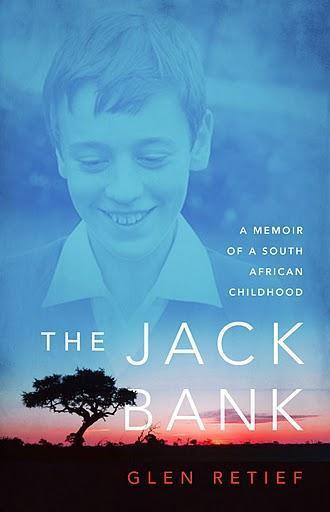
If I was homosexual and
unrepentant, I reasoned, God would throw me into hell. I could imagine
what hell might feel like. It might be my buttocks burning after corporal
punishment—like the fire of Biblical imagery. It could be a 17-year-old’s
fist slamming into my gut. It could be the loneliness of being bullied,
the self-hatred, regret, and separation from joy and love. It could be
despair.
So who, then, were my
bullies acting on behalf of—the Roman soldiers who flogged Jesus, and thus were
God’s enemies? Or God the father, rejecting LGBT people for eternity, the
way the bullies were rejecting me?
And who was God?
Was He a gentle, loving Savior? Or a homophobic bully?
In college, as I
continued to struggle with my sexual identity, I concluded the latter. I
realized I could never be happy on Earth pretending to be heterosexual. I felt
praying to become straight would be as blasphemous and arrogant as asking God
to change my height or eye color. I didn’t want to volunteer to shut out
romantic love from my life—the beautiful union of physical and spiritual
intimacy that straight people took for granted as a potential blessing life
might grant them—by committing to celibacy, and I thought the positive,
self-loving thing to do was to accept myself.
With adolescent logic,
though, I reasoned that if God was a bully, then I would have to be against
God. So I embraced atheism and gay human rights activism, becoming part
of a group which successfully lobbied for a clause banning discrimination on
the grounds of sexual orientation in South Africa’s postapartheid constitution.
Later in life, though, I
missed the God of my childhood. The God of my apartheid teachers and
prefects may have been a bigoted tyrant, but there was another God I had
experienced—the God who had kept me alive. I missed that God.
So in my thirties I
became a Quaker, practicing gentle, non-dogmatic spirituality—listening in
silent worship to the whisperings of love in my soul. Today, I call that
experience “God”—connecting with a peaceful and loving center in my heart—and
it means a lot to me in my day to day life.
Unlike many Quakers,
though, I still struggle with whether to call myself Christian. There’s a
bunch of different reasons for that, but at core, I think I struggle with a
deep-seated distaste for Christianity that comes from my life
experiences.
years, who felt that they had the authority of Leviticus, Romans, and a
Christian government behind them when they tried to “fix” me with fists and
cricket bats. It’s hard to embrace the religion that deeply hurt you.
So today, will Christians
stand with the Jesus I pictured in my youthful distress, understanding what it
means to suffer, and reaching to comfort persecuted LGBT people without
judgment? Or will they stand with my Christian-identified prefects,
holding a cricket bat or a Bible passage, and readying themselves to beat
someone with it? The spiritual futures of people like me may hinge on how
Christians answer this question.
***
Be sure to check out Glen's book, The Jack Bank. You can read an excerpt here. Learn more about Glen on his Web site.
Additional Resources:
The Bully Project (The documentary film, “Bully,” is especially eye-opening)
“Understanding Bullying” – Psychology Today



March 21, 2013
Out of the Shadows: Getting Help Inside and Outside the Church
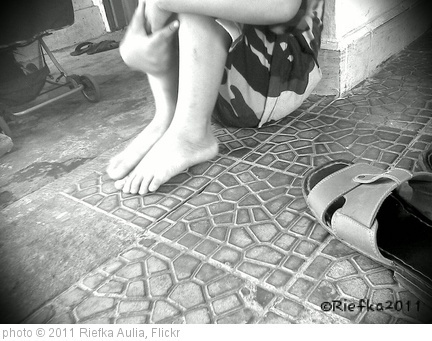
This is the seventh post of our weeklong series, Into the Light: A Series on Abuse and the Church, which
features the stories of abuse survivors, along with insights from professional
counselors, legal experts, and church leaders about how to better prepare
Christians to prevent and respond to abuse. Through the course of the
series, we will be discussing child abuse, spiritual abuse, sexual violence and
abuse, and domestic violence. Check out the previous posts here.
This afternoon’s post focuses once again on treatment, and it
comes to us from Laura Worley. Laura is a licensed clinical social worker and licensed chemical
dependency counselor. She provides counseling services to individuals
with mental health and substance abuse issues, and provides clinical services
to the drug court, DWI court, and family recovery court programs. She has
worked extensively in inpatient psychiatric, community mental health, and
criminal justice settings. Laura lives in Lubbock, Texas and enjoys
spending time with her family and friends, running, reading, writing, laughing,
snacking, and collecting Swatch watches from the 80's.
***

“If she had a stronger prayer
life, she wouldn’t be depressed.”
“If he only realized how much
he has to be grateful for, he would not need medication to make him feel
better.”
“If he really cared about his
children, he would stop drinking.”
“Doesn’t she know that people
who commit suicide go to hell?”
“She should just get over the
past and move on.”
“These types of things are
best dealt with inside the church, without involving secular professionals.”
Over the course of my 16-year
career as a clinical social worker and substance abuse counselor, I have heard
these statements, and ones like them, numerous times. They are often made by well-intentioned
individuals and not intended to cause hurt to already-hurting people. They are also, at times, made by my fellow
members of the Body of Christ, who do not realize that while their words hold
the power to bring healing to others, they also hold the power to wound.
actions to be led by misguided beliefs, we not only miss out on the opportunity
to bring healing to a hurting world, but we can become inadvertent accomplices
in causing further pain to suffering people.
The good news is that when
we, as the Church, cultivate a culture of compassion, mercy, and honesty, we
have the opportunity to witness the transformation of lives in the name of our
Savior. I am blessed to be a part of a
local church community that pursues Christ wholeheartedly and seeks to reach
out to the lost, hopeless, and hurting, while equipping believers to become
stronger followers of Christ. In doing
so, there are many occasions in which my church, like other churches seeking to
serve those who are hurting, works together with local counselors and other
agencies to bring healing to people.
As a counselor and a
Christian, I know that deep healing comes from Christ. While most churches
provide opportunities for individuals to receive pastoral counseling services
when assistance is needed in dealing day-to-day struggles, there are times when
the issues involved are such that the training and background possessed by
pastors and church leaders just aren’t sufficient to meet the needs of certain
individuals, and referrals to professional counseling or outside agencies are needed. I am thankful to be a part of
a church where these referrals are gladly provided, and where hurting people are
loved and supported while they seek out professional counseling and other
needed services.
Just as church leaders would
refer individuals suffering from high blood pressure, migraines, or other
medical problems to a physician, individuals who are suffering from acute
mental health symptoms, clinical depression, addiction, or trauma/abuse issues
can be best treated, and be provided the best opportunity for healing, when referred
to an individual with the training and expertise to address these issues.
In many ways, the Church as a
whole has come a long way in its acceptance of mental health and addiction
issues as no-fault struggles facing Christians and non-Christians alike. There was a time, not so long ago, when those
suffering from depression were seen as “not having enough faith” or “not
praying hard enough.” Believers
suffering from depression were, at one time, often discouraged from taking
medication and seeking counseling. And
while the spiritual aspects of depression should be taken into consideration in
many cases, most churches now accept that depression has numerous causes, many
of which are medical/biochemical in nature.
For the most part, peple who take medication for depression do not face
the stigma within the church that they once did, and most churches have made
great strides in their willingness to refer individuals for medication and
professional intervention when depression and other mental health issues
arise.
The same holds true for
addiction issues. Most pastors and church leaders now realize that addiction is
not merely “sinful behavior,” and that individuals who are truly addicted are
not able to just stop their substance use or addictive behaviors simply by
having more faith/willpower.
As someone who provides
assessment and counseling services to individuals who have experienced trauma
and abuse, I am especially grateful when I see churches provide biblical
support and love to these individuals, while also referring them for needed
services from outside agencies and counseling professionals.
People who have been victims of abuse
experience a tremendous amount of shame, and often struggle for many years with
self-blame. They often face depression,
turn to unhealthy behaviors, use drugs and alcohol, and engage in unhealthy
relationships. They often make a life
for themselves “in the shadows,” because this is where their abuse
occurred.
The shame and guilt can often
be compounded when the abuse occurred in a church setting or was perpetrated by
a church leader. And as much as those of
us who are members of the Body of Christ would like to pretend that these types
of abuses do not occur, they do. They have occurred over the years in various
church settings, and they still occur today.
And as the Body of Christ, we are called to respond.
The Church is called to be
the light of the world. Healing does not
occur in darkness; it does not occur “in the shadows.”
Victims of abuse MUST be
encouraged to report this abuse to authorities, and to seek appropriate
professional help. When this does not
occur, these hurting individuals are unintentionally re-victimized by being
pushed back into the shadows.
In addition, perpetrators of
abuse generally do not stop committing acts of abuse without help. Just as well-meaning individuals who “cover”
for an alcoholic’s absences from work unintentionally enable the alcoholic’s
addiction and often delay the seeking of help by the alcoholic, individuals who
“cover” for an abuser often delay the abuser’s seeking help and unintentionally
allow either the abuse to continue or others to be victimized.
Bringing abuse into the light
– by encouraging and assisting with reporting abuse to appropriate authorities,
referring victims and perpetrators for professional help, and facilitating a
culture of openness and honesty in the church – is the most effective way to
bring healing to all involved. This
culture of openness and honesty is healthy – both for individual believers and
for the Church as a whole – and healthiness honors God. Our mission to be light to a hurting world
begins with our being light to those within our church walls.
***
In addition to this excellent post from Laura, I
hope you will jump over to Zack Hoag’s blog, where he raises some good
questions about Sovereign Grace Ministries and the Counseling Cliff. Here’s an
excerpt:
“I have personal
experience with this style of counseling at a church I served in 7
years ago. It was one of the primary reasons my wife and I finally decided to
move on. One of the mainstays of this style is an antagonism toward “secular”
counseling or “modern” psychology, leading church movements like SGM and Mars
Hill Church in Seattle, for instance, to require members to only receive
counseling from their pastors. And, sometimes, to seek that counsel from elders
even in place of
alerting the police.
Another mainstay is the emphasis on sin as the
root of all emotional/psychological pain/difficulty. Medication for depression,
for instance, is routinely frowned upon if not forbidden; and issues of abuse
are oversimplified as sinners being sinners. In CJ’s famous words, we
are all doing “better than we deserve,” and God’s holiness is such that abusers
and the abused alike are equally deserving of an eternity of suffering in hell. Thus,
God’s grace given to such undeserving people demands that victims must
“forgive” abusers and get over their pain by simply submitting to the gospel
and repenting – and, in the case of this lawsuit, this may even lead to
“reconciling” children with abusers in person without involving authorities at
all….
Evangelical seminaries may offer counseling
courses and degrees, but there needs to be a strong distinction in
the church between spiritual advisement/discipleship and professional, clinical
counseling. And that distinction needs to be made abundantly clear by
church leadership. The pastor’s and leader’s job is to provide spiritual
guidance and discipleship for faith and life, as well as administration for
community, worship, and mission – but NOT to diagnose and treat serious issues
of emotional/psychological pain (not to mention become sex therapists or
professional marriage fixers).” Read more.
***
I am interested to know if
you have ever been discouraged from seeking professional counseling outside of
your church? Or has your church been
supportive of those whose journey to healing may require professional
assistance?
How do pastors balance their
call to be spiritual guides with the responsibility to ensure their fellow
Christians get the best help possible? What are some best practices here?



"Don't Talk About It": Reflections on Spiritual Abuse by Kristen Rosser
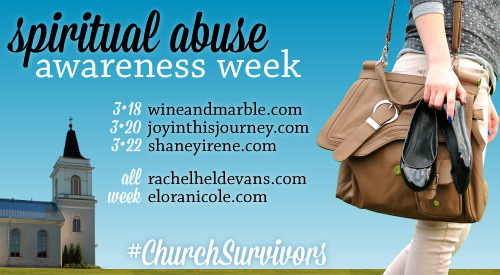
This
is the seventh post of our weeklong
series, Into the Light: A Series on Abuse and the Church, which
features the stories of abuse survivors, along with insights from professional
counselors, legal experts, and church leaders about how to better prepare
Christians to prevent and respond to abuse. Through the course of the
series, we will be discussing child abuse, spiritual abuse, sexual violence and
abuse, and domestic violence.
This morning’s post comes to us from Kristen Rosser.
Kristen is one of those people who strikes me as being
both smart and wise...a combination that shouldn't be taken for granted.
I always learn something new from her posts, which are consistently
well-researched, thoughtful, and challenging. (Remember her guest post, “Is
marriage really an illustration of Christ and the Church?”) Born and raised
high in the Colorado Rockies, Kristen Rosser now lives in the Pacific Northwest,
where she is raising two children, now teenagers, with her husband and best
friend of nearly 25 years. After becoming a Christian at the age of 15 ,
she experienced some of the excesses of the word-of-faith, shepherding and
dominionist movements, which led her to reassess her beliefs and seek a simpler
and more Christ-centered faith. Kristen blogs at
Wordgazer's
Words.
Since today’s focus is on spiritual
abuse, which many are less familiar with than, say, sexual abuse, I encourag
e
you to check out this week’s synchroblog on the topic,
hosted by Hannah, Joy, Shaney, and Elora. Also, it should be noted that the
sort of highly-authoritarian churches that leverage spiritual abuse as a method
of control often create environments in
which physical/sexual abuse can thrive.
So it’s important to pay attention to the signs.
***
"Don't Talk About It"by Kristen Rosser
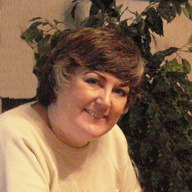
I was in college, living
in an ex-fraternity house made over into a Christian boarding house for members
of Maranatha Campus Ministries. It was 1983 or 84.
The leaders of Maranatha, Bob Weiner and Joe Smith, had come up with another
new revelation that they said was from God. They took their text from
John 15:8:
"By
this is My Father glorified, that you bear much fruit, and so prove to be My
disciples."
Bob Weiner and Joe Smith said that by "bearing fruit," Jesus meant
"making converts." This meant, they said, that the more
converts to Christ you made, the more you had "proved to be His
disciple." Therefore, those of us who had never made a convert were
not really disciples of Christ. Oh, we were saved all right, and we would
go to heaven when we died, but were were all a sort of lesser follower of
Jesus. Not bearing fruit. Not proving ourselves. Not quite
measuring up.
I and some of my friends were very upset when we heard this new teaching.
We were accustomed to taking every word uttered by Bob or Joe as the very
truth of God. They had taught us "total commitment" to Jesus,
to our leaders, and to our brothers and sisters in the church. To follow
Jesus as He wanted, we must follow Him with our whole hearts, not being
"lukewarm" like so many who claimed to be Christians were.
I had embraced total commitment and believed I was following with my whole
heart. But suddenly now, even that wasn't quite good enough.
I began to search the Scriptures. Could the passage really mean what they
said it did? On the other hand, should I be questioning my leaders?
Feeling a little guilty, but also remembering that they had also taught
us to read the Bible for ourselves, I looked at every passage where
"fruit" was mentioned in the New Testament. It didn't seem to
bear out what they were saying. Somewhat relieved (maybe I was a real
disciple after all!), I determined to wait for Joe Smith's upcoming visit to
our fellowship. Surely if I put my questions before him, he would see
where I was coming from and maybe even get back together with Bob Weiner to
discuss it again.
A few weeks later, Joe Smith arrived. We had spent the time before
his arrival scrubbing the ex-frat house from top to bottom, preparing and
handing out flyers for the meetings, and praying, praying, praying for lots of
new people to come, be converted, and become members of Maranatha. Since I
was also carrying a full course load of college credits and trying to keep up
with my regular household chores, I hadn't had much time to think about what I
would say to Joe Smith after the meeting.
I don't remember what he preached about. But afterwards, when other
church members were clustering around the great man praising him for the sermon
and receiving his blessings, I approached him, shaking inside, and asked if we
could speak in private for a moment. With a kind, fatherly look, he agreed
and we stepped apart a little from the meeting room, out into the foyer.
Nervously I asked him about the new revelation, about what "bearing
fruit" meant. I told him that when I had looked it up in the New
Testament, in all other passages where "fruit" was mentioned in terms
of "bearing" it, it seemed to be talking character traits-- about the
fruits of the Holy Spirit from Galatians 5:22-23, like love, joy, peace,
patience, etc. I told him that in every other passage where
"fruit" was mentioned in terms of converts to Christ, it was spoken
of in terms of "gathering," not "bearing." I also
asked if he thought "proving" to be a disciple really meant
"proving to Jesus' satisfaction that you were a disciple" and not
"proving to the world to be Jesus' disciple."
Joe Smith let me babble on for a few minutes. The look of kind, fatherly
attention never left his face. Then, in just a few words, he let me know that I
was wrong. "I discern that you are not letting Jesus' words into
your heart," he said. "You are not responding to His
words-- you are only reacting. You need to stop, listen
to the truth of what we're teaching, and let it go deep inside you. Do
you understand?"
Speechlessly I nodded. Joe Smith was telling me that not only was I wrong
about what I thought the Bible said, but that I needed to stop fighting the
truth that I was not a full, true disciple of Jesus. I needed to let this
truth sink deep inside me. I felt myself letting it do so. And as I
did, I began to weep uncontrollably.
Joe Smith smiled. "That's it. Let the Spirit of God touch
you."
How could I tell him that I was weeping not because I felt the Spirit of God
touching me, not because the truth was sinking in and changing me, but because
I now believed I was a second-class follower of Jesus, a person Christ was not
really satisfied with? That all my efforts to follow Him with my whole
heart were in vain unless I could make a convert? That since I could
never seem to speak the right words to make someone else want to follow Jesus, I
probably never would be a real disciple?
My tears were tears of despair.
I couldn't tell him. Blindly I turned and stumbled up the two flights of
stairs to my own room in the Maranatha house. I sank down onto the floor,
and cried and cried.
After about 20 minutes of hard crying, I felt a stirring in my heart.
Then four short words out of nowhere flooded into my mind, along with a
deep warmth that filled my heart to the brim:
"Daughter. He
is wrong."
Jesus did absolutely consider me His disciple.
He was fully satisfied with me. Joe Smith and Bob
Weiner could be wrong. They were wrong.
My tears vanished, and joy welled up inside me as I wiped my face and blew my nose.
I got up from the floor and went downstairs to help serve food. As
I ran down the steps, the deep assurance filled me again. Joe Smith was
wrong, and God had spoken to me. I was Christ's disciple no matter what
any human being said. Even if they called themselves prophets.
But I told no one.
Not even my friends, who I knew were also upset by the new teaching. Not
my pastor, or pastor's wife. Certainly not Joe Smith! A leader was
never to be spoken against, in public or in private. To speak out would
be to rebel against his God-given authority and to shame myself by showing a
rebellious heart.
So I held my joy inside me, drinking of the certainty that my leaders could be
wrong, in the privacy of my own heart. I never felt the same way about
them again. I continued to read the Bible for myself, and if something
they said didn't make sense to me, I no longer felt obligated to believe it.
I guess for me, it was the beginning of the end of Maranatha Campus Ministries.
Years later, the group would dissolve under protests from some of the
pastors of individual churches that the upper leadership was too authoritarian.
But my own freedom began that night, and as I rested in the vine (as the
actual context of Jesus' words about "bearing fruit" in John 15:8
said to do), I did indeed bear fruit. Fruit of strength in my own heart
instead of dependence on others. Fruit of confidence in my relationship
with Christ. Fruit of compassion for others who were being made miserable
by destructive teachings.
And fruit of understanding-- first-hand understanding-- of what "spiritual
abuse" meant.
small. Because Joe Smith was a leader and I was an underling.
Because Joe Smith was an authority, and I was a nobody.
No words against Joe Smith were ever to be spoken. If I spoke them, it
was I-- not Joe-- who was in the wrong. Joe Smith could never be in the
wrong, because he was in authority.
Last year, a prominent
Christian leader was forced to resign amid allegations that he
was having a sexual relationship with a 17-year-old girl, a prior victim of
sexual abuse, who had come to him for pastoral care. Some blog sites
devoted to exposing and helping victims of spiritual abuse have posted stories
about it. And some of the comments on these sites have taken a page right
out of Maranatha Campus Ministries' old book.
How dare you post something like this about a man of God? Who do you
think you are?
This girl consented, didn't she? And anyway, no sin is worse than any
other sin in God's eyes. We need to show mercy to this pastor. After
all, "love covers a multitude of sins." [The fact that
Jesus placed greater emphasis upon offending "one of these little
ones" than on any other sin, is not taken into account. Matt. 18:6]
This pastor is a godly man! Don't contribute to the rumors! We shouldn't
be judging him, we should be praying for him and his family! [No
mention is made of possibly praying for the 17-year-old girl and her family.]
You don't know what you're talking about. God will be angry with you for
bearing false witness.
This is an internal matter for the church involved. Stay out of it.
You are casting stones at a man of God. You should just be
quiet.
of a dysfunctional, codependent family is the "don't talk about it"
message.
Be quiet. This is family business and no one else's. How dare
you talk like that about your father?
Keep the secret. Sweep it under the carpet. No one must see.
No one must know.
But it isn't only families that can be dysfunctional. Churches can be,
too. And when they are, they will tell their members this same thing.
The result is what's called"enabling:"
An enabler
is a person who by their actions make it easier for an addict to continue their
self-destructive behavior.
possible to become addicted to authority.
A person who is so addicted
will uphold his or her authority at all costs, even at the expense of those
whom their position of authority was created to serve. And the person
who is addicted will encourage his or her followers in enabling behaviors, to
make it easier to hold onto his or her authority.
God or the Bible are used to encourage enabling, in ways that bring shame, harm
or misery to the enablers, this is spiritual abuse.
I agree that this pastor needs help-- but not at the expense of his victim.
And "don't talk about it" will help neither of them. It
will only perpetuate the girl's shame and misery, and enable the pastor to
continue in his abusive, dysfunctional behaviors. In Ephesians 5:1-13
Paul talks about relating to other professing Christians who commit heinous
sins. He says in verse 11-13:
"And
do not participate in the unfruitful deeds of darkness, but instead even expose
them. For it is disgraceful even to speak of the things which are done by
them in secret. But all things become visible when they are exposed by
the light, for everything that is visible is light."
Paul is not saying, "The person who did the deed is a Christian, and
therefore we need to keep this quiet." He is not saying, "The
deed is disgraceful, therefore youwill be disgraced if you speak of
it." He is saying, "The disgraceful deed must be exposed in all
its disgrace, precisely because it is so disgraceful even to
speak about!"
Yes, it is disgraceful to speak of a pastor entering a sexual
relationship with a vulnerable member of his flock whom he was supposed to be
helping. But it is not disgraceful to the person speaking. It is
disgraceful to the person doing the deed spoken of. However it also
brings the deed out into the light, which is the only place where healing can
happen.
I'm not saying it's ok to have a free-for-all of name-calling and abusive words
about this pastor. Two wrongs don't make a right. But in the light
is where the enabling stops. In the light is where the perpetrator must
face himself and his deeds. In the light is where the victim can see that
the shame is not hers to bear.
So to those who are saying, "Don't talk about it," I say this:
Do talk about it. Stop sweeping it under the carpet. The
stories must be told. Stop shaming those who tell them. The person
who is in the wrong is not above the rest of us. He needs the light just
as much as anyone.
"For
the fruit of the light consists in all goodness and righteousness and truth." Eph. 5:9.
***
Be sure to find Kristen’s blog—one of my favorites--where this piece was originally posted. And don’t’ forget to check
out the #churchsurvivors synchroblog.
Previous posts in the series:
The Scar of Sexual Abuse by Mary DeMuth
No More Silence: An Interview with Boz Tchividjian of
G.R.A.C.E.
"Today’s Journey”: Thoughts on Healing from
Grace Biskie
Proper Treatment for Sexual Abuse by Dr. Philip Monroe;
Dianna Anderson on Rape Culture and Victim Blaming
Additional Resources on Spiritual Abuse:
"10 Ways to Spot Spiritual Abuse" and
"What to Do if You Are in a Spiritual Abusive Situation”
by Mary DeMuth
Top 10 Signs of
a Spiritually Abusive Church – Part 1 & Part 2 by Elizabeth Esther
“Tips for Recovering from a Spiritually Abusive Church”
and “Tips for “Moving On” from an abusive church experience”
by Elizabeth Esther
Wellspring
Retreat & Resource Center
Boundaries: When to Say YES, When to Say NO, To Take
Control of Your Life by Cloud and Townsend
The Subtle Power of Spiritual
Abuse: Recognizing and Escaping Spiritual Manipulation and False Spiritual
Authority Within the Church by David Johnson and Jeff
VanVonderen



March 20, 2013
Dianna Anderson on Rape Culture and Victim Blaming

This is the sixth post of our
weeklong series, Into the Light: A Series on Abuse and the Church, which
features the stories of abuse survivors, along with insights from professional
counselors, legal experts, and church leaders about how to better prepare
Christians to prevent and respond to abuse. (Previous posts include: The Scar of Sexual Abuse by Mary DeMuth; No More Silence: An Interview with Boz Tchividjian of
G.R.A.C.E.; “Today’s Journey”: Thoughts on Healing from Grace Biskie; Proper Treatment for Sexual Abuse by Dr. Philip Monroe;
and “God is Love” by Sarah Moon.) Through the course of the series, we will be
discussing child abuse, spiritual abuse, sexual violence and abuse, and
domestic violence. In addition, my friends Hannah, Joy, Shaney, and
Elora will be hosting a synchroblog focused specifically on spiritual abuse,
which you can learn more about here.
This
afternoon’s post comes to us from Dianna Anderson. Dianna is a
blogger in the Chicago area. She has a BA in theology/philosophy and an MA in
English Literature. When not kicking butt and taking names through her feminist
writing, she works a mild-mannered radio producer. I have learned so much from
Dianna through the years, it’s hard to know where to start. While I know some evangelicals
may wince at the idea of hearing from a feminist, I do hope you will take the
time to listen to this perspective, as I think churches interested in addressing
problems related to abuse can really benefit from some feminist insights
into rape culture and victim blaming. The news out of Steubenville this week should serve as a haunting reminder of the importance of having this conversation. Dianna blogs at http://www.diannaeanderson.net and tweets @diannaeanderson
Trigger Warning: Rape, violence, victim-blaming
***
A couple of weeks ago, law student and Democratic pundit
Zerlina Maxwell went on Sean Hannity’s Fox News show for a “debate” about gun
control. The issue of self-defense came up, and Maxwell – a rape survivor –
said that guns are not necessarily rape prevention and that, as a culture, we
need to start examining cultural biases and teaching men not to rape.
In the week
following, Maxwell’s
social media pages were under siege from people who took offense to the
idea that men should be taught not to rape. Actor Adam Baldwin (Jayne from the
cult TV show Firefly), in a
disappointing turn of events, referred to Maxwell’s ideas as “bigotry.”
Worse, numerous people began threatening her with racist rape and death
threats. Her FB page quickly filled with such vitriol that she had to have her
boyfriend go through and delete comments (it was too emotionally taxing to do
so herself).
Apparently,
the idea that men (who are, statistically, the most common perpetrators of
rape, but certainly not the only ones) can be taught not to rape is a shocking revelation for many people. Why? Because
we exist in what feminists call “rape culture.”
I know a lot
of people will shut down and stop listening the instant feminist buzzwords come
into play, but if you’ll do me the honor of hearing me out, I think you’ll find
yourself rewarded.
Rape culture is the idea that we live
in a culture that condones and endorses rape.
This is
tough pill to swallow because it implicates our very selves, when – as the
response to Zerlina Maxwell shows – we would much rather believe that rape is
perpetrated by strange monsters who lurk in dark alleys and who can be shot at
point blank range because
all they’ll ever be is a monster.
But rapists
aren’t monstrous beings that are easily identifiable by some physical feature
like a spine-filled tail or horns. No, the vast majority of rapes are committed
by someone known to the victim, most often inside a home that belongs either to
the rapist or the victim. Rapists are your brothers, your fathers, your
pastors, your husbands, your cousins, your friends. They look and sound and
feel like your average, everyday person – which is why the “stranger in a dark
alley” narrative is kind of absurd.*
As a
culture, though, we teach about rape from the perspective that it happens in
dark alleyways, committed by strangers. The reason for this, I believe, is so
we can feel better about preventing our own rape. If rape has a specific,
defined narrative with specific, defined elements, then women just need to not
do specific things and they’ll be safe.
This is how
we land at rape culture. Because we, as a culture, believe certain myths about
how rape happens and what rape looks like, we end up punishing victims for
their failure to follow the prescribed rules that come from these myths.
This is called victim blaming.
Victim
blaming looks like this (special thanks to my Twitter followers for providing
examples):
“She
shouldn’t have been wearing that skirt? What was she thinking?”
“I'm sure it
was a misunderstanding. He's such a nice guy.”
“You need to
have better boundaries and draw the line before things get too heated.”
“There are
ways of preventing rape like not getting too drunk.”
"Well,
there's two sides to every story.”
“I wouldn't
be caught dead in that neighborhood.”
"Why
did you stay with him for so long?"
"So,
you don't think you have to ask God for any forgiveness?"
Victim
blaming, as you can see, assumes that there is something the victim could have
done to get out of the situation, that there is something that could have
prevented the assault, or that there is something they need to apologize for. Victim
blaming and rape culture are intimately tied together. Both assume that rapists are an unstoppable force and it is up to us,
as potential victims, to get out of the way.
As other feminists
have said, tactics that instruct women not to get raped are really just
saying “Make sure he rapes the other girl.”
This way of
talking about rape and rapists is unhelpful and ineffective, but extremely hard
to challenge because it requires more than just catching rapists, locking them
up, and throwing away the key. It requires that we, as a culture, examine our
rhetoric and the ways in which we teach our children about consent and respect
of women’s bodies. It’s hard work.
But, young
men and boys are listening. They are absorbing what we teach them. And when we
start teaching that enthusiastic consent is necessary and that rape is a decision
men make, not an unmovable part of their nature, we
see change. It is slow, and it is arduous, but teaching men not to rape
really does prevent rape.
We, in the
church, have a responsibility to teach men to respect women’s bodies –
regardless of what they are wearing or what activity they may get up to. Rather
than being on the forefront of preventing rape, we have set ourselves up as one
of its greatest proponents. We do this with
the way we talk about women’s bodies – objectifying them into categories of
“modest” or “immodest,” “pure” or “impure.” We judge and vilify women who
choose to be sexual, and we promote some of the worst victim blaming rhetoric
that exists.
And we need
to change.
_________
*This is not
to deny that stranger rape happens, because it does.
***
Consider subscribing to Dianna's blog...but only if you want to start seeing the world in a bunch of new ways! You can see the rest of the posts in our series here. And don’t forget about the Spiritual Abuse Awareness Week synchroblog.
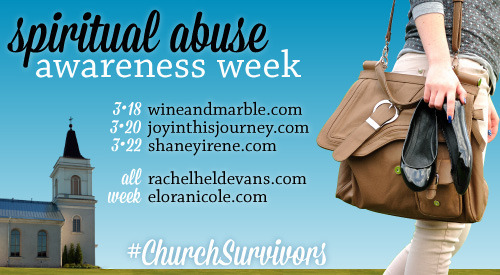



“God Is Love” by Sarah Moon

This is the fifth post of our
weeklong series, Into the Light: A Series on Abuse and the Church, which
features the stories of abuse survivors, along with insights from professional
counselors, legal experts, and church leaders about how to better prepare
Christians to prevent and respond to abuse. (Previous posts include:
The Scar of Sexual Abuse by Mary DeMuth; No More Silence: An Interview with Boz Tchividjian of
G.R.A.C.E.; “Today’s Journey”: Thoughts on Healing from Grace
Biskie; and Proper Treatment for Sexual Abuse by Dr. Philip Monroe.)
Through the course of the series, we will be discussing child abuse, spiritual
abuse, sexual violence and abuse, and domestic violence. In addition, my
friends Hannah, Joy, Shaney, and Elora will be hosting a synchroblog focused
specifically on spiritual abuse, which you can learn more about here.
This morning’s post comes
to us from one of my favorite bloggers, Sarah Moon.
Sarah is a Women's Studies
student at Oakland University, an intern at Alternatives for Girls in Detroit,
and a master burger-flipper. She enjoys studying feminist theory and theology,
playing nerdy board games with her fiance Abraham, and blogging at
SarahOverTheMoon.com.
Trigger Warning: domestic abuse, violence
***
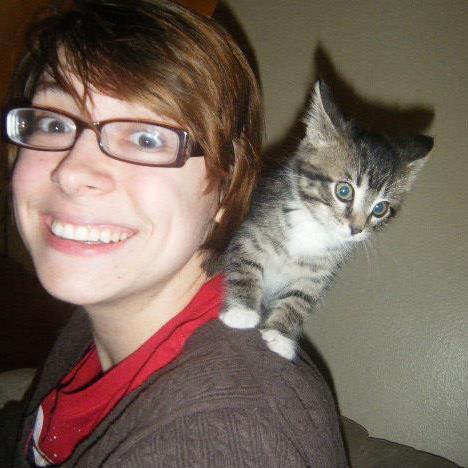
God is love. I believe that with my
whole heart.
But what is God? And what is love?
We need to ask ourselves these
questions and think deeply about them before we can even begin to start solving
the problem of abuse in the Christian church.
Growing up, I was taught that God
was the source of all love, and that we could only know love by knowing God (I
no longer believe this because I believe all human beings, theist or atheist,
are capable of great love). As a
straight-A student at a Baptist high school, a member of an award-winning Bible
Quizzing team, and a substitute church pianist, I thought I knew God pretty well.
When I met my first boyfriend, he treated me how I imagined that
God might treat people. So when he told me he loved me, I believed him.
That’s why he grabbed my arm so
tightly that it left hand-print-shaped bruises after I tried to walk away from
him after a fight. He “loved” me too much to let me walk away.
That’s why he touched me in places
where I had asked over and over again not to be touched. He “loved” me too much
to keep his hands off of my body.
That’s why, when I tried to leave
him, he threatened to kill me and himself. He “loved” me too much to live
without me, or to let me live without him.
I thought it was love, but it was
abuse.
I didn’t see it. Even after he
raped me, gave me bruises, called me every awful word he could think of, nearly
broke my nose, and threatened to kill me, I didn’t see it. It took me two years
to admit that I was indeed abused, and another two years to admit that. no,
this man did not “really love me, deep down.”
Somewhere along the line, I learned
to accept abusive behaviors as truly loving. Part of this was undoubtedly due
to the fact that we live in a culture and society that portrays abusive
behaviors as protective, passionate, and romantic (think Beauty and the Beast or Twilight).
As a society, we’re confused about
love. According to bell hooks, we “cling to a notion of love that…makes abuse
acceptable.” (from All About Love: New
Visions). We don’t know much else because, as a society, we don’t have a
clear definition of love.
Abuse abounds and it calls itself
love. Evil appearing as an angel of light.
What has the church done about
this? When I, as a confused, hurting 16 year old girl turned away from these
poisonous definitions of love that were slowly killing me toward the God who
was supposedly the source of true love,
what did I find?
I found that my church was eager to
attribute horrific acts—from the genocides of the Bible to modern school
shootings—to God and call them “loving.” In its theology, my church had twisted
the meaning of love beyond all recognition because it thought that doing so
would do God justice. I did not find a new, healthy definition of love from
turning to God, because my church’s image of God was born out of the union of
church and a culture of abuse and oppression.
As we talk about abuse in the
church, it is important to treat the symptoms. But we need to go deeper. If our
God were a man, and the church were truly his bride, would He be an abuser? When
we think about the ways that we say God interacts with the world, can we truly
call those love?
It’s hard to think about our images
of God. They’re anchored deep in our theologies, in our hymns and worship
songs, in our prayers and in our children’s coloring books. It’s easy to be
afraid that the second we pull up those roots and examine them, the earth will
fall out under our feet.
But it’s important. In fact, it’s
necessary. If we’re going to talk about abuse, we need to talk about the
opposite of abuse—love. If we cannot decide on a clear definition of love, then
abusers will continue to hide behind it.
And if we, as Christians, are going
to talk about love, we need to talk about God.
Today, I believe that love is the
opposite of abuse. I believe the words of
bell hooks when she says, “love and abuse cannot coexist.” I repeat these words
to myself everyday.
When I embraced a new definition of
love that could not include harm and abuse, and when I started to hold God to
the same standards of love that I now hold all of my romantic partners to, the
God I’d once known faded away.
But new images of God soon came
flooding in.
God is the strength I found to
leave my abuser.
God is that whisper of hope that
sometimes cuts through pain from abuse that persists even after six years.
God is the protest song that fills
my lungs as I continue to march toward freedom.
God is justice, hope, and peace.
God is the opposite of abuse,
because God is love, and love is the opposite of abuse. Images that twist the
meaning of love to paint God as a cruel and hateful abuser do not do God
justice. As a Christian community, we need more images of God that affirm God
as a God of love. We can drive out the darkness of abuse, but only with the
light of love.
***
Don’t forget to check out Sarah’s
blog.
If you are in an abusive
situation, please seek help immediately. No act of abuse is justified
by the Bible or desired by God.
Resources recommended by Sarah:
“Seven Reasons Women
Stay in Abusive Relationships and How to Defeat Each One of Them” by John Shore
Restored: Ending Violence Against Women
Abuse/Dating Violence
Statistics
Additional Resources:
National Domestic Abuse Hotline - 1−800−799−SAFE(7233)
Signs of Abuse and Abusive Relationships
Peace and Safety in the Christian Home
And don’t forget about the
Spiritual Abuse Awareness Week synchroblog.
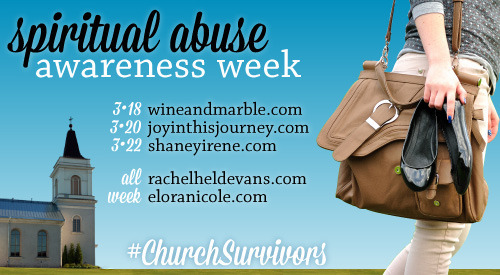



March 19, 2013
Proper Treatment for Sexual Abuse: 7 Questions to Consider
This
is the fourth post of our weeklong series, Into the Light: A Series on Abuse and the Church, which
features the stories of abuse survivors, along with insights from professional
counselors, legal experts, and church leaders about how to better prepare
Christians to prevent and respond to abuse. (Previous posts include: The Scar of Sexual Abuse by Mary DeMuth
;
No More Silence: An Interview with Boz Tchividjian of
G.R.A.C.E.; and “Today’s Journey”: Thoughts on Healing from
Grace Biskie.) Through the course of the series, we will be discussing child
abuse, spiritual abuse, sexual violence and abuse, and domestic
violence. In addition, my friends Hannah, Joy, Shaney, and Elora will be
hosting a synchroblog focused specifically on spiritual abuse, which you can
learn more about here.
Today we will be focusing on the winding road
to healing. This
afternoon’s post comes to us from Dr. Philip Monroe. Dr. Monroe is Professor of Counseling
& Psychology at Biblical Seminary in Hatfield, PA. He also directs the
newly formed Global Trauma
Recovery Institute with Dr. Diane Langberg. To read more of his thoughts, check out his blog.
***
Are you getting proper treatment for your sexual abuse? 7 questions to considerby Dr. Philip Monroe
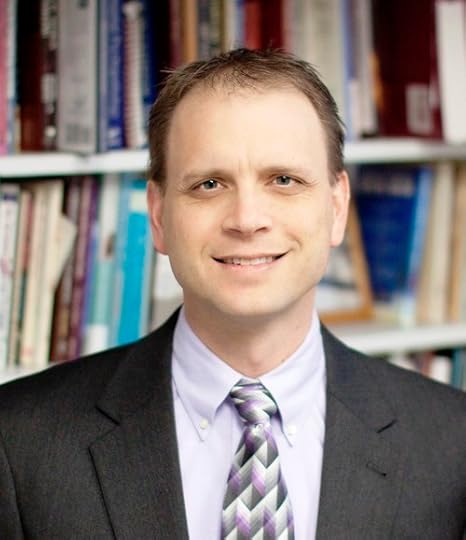
You will
find the theme of sexual abuse all over the news these days, from clergy sexual
abuse to teacher-student improprieties. This level of public discussion allows
some victims to feel empowered to speak about past abuse. Hopefully these same
individuals find the courage to seek out a counselor to address ongoing
struggles with memories, shame, and self-doubt.
But will
just any counselor do?
How can you
know if the counselor you’ve picked is the right one? Are there questions you
can ask to determine whether you are getting good care? Consider the following
questions:
disclosure of sexual abuse?
It takes
great courage to tell another person about violations of body and soul. Victims
fear not being believed, blamed, or worse, having their secret told to others.
Thus, when a person sets aside those fears and speaks of what has been hidden,
it is a great honor to be blessed with that story. Consider these questions to
see how your counselor rates:
it as precious?
Once
you have told the story, what do they do next? While we counselors hear many
tales of woe, it can be tempting to ignore sexual trauma, especially if it
happened many years ago or is especially horrific. Some counselors think that
past experiences should remain there. They choose to focus only on present
problems. Or, counselors can dive into the story and unintentionally force the
client to talk too much about the abuse before trust has been fully
established.
confrontation or reconciliation?
There is a place and time to talk about these matters.
However, if you have just started telling your story and these topics are their
prime focus, then you know that they are most interested in getting to the end
of the story, the happily ever after part. The impulse to get to the end will
inevitably make you feel like your abuse was a mere trifle.
of my abuse?
Counselors
who ignore your abuse story are not the only danger. Counselors who dive into
your story with great relish may cause you to feel re-victimized. There is a
time and place for telling the story in greater detail (so as to process what
you have come to believe about yourself and others). Those who rush in to the
gory details seem to think that all story-telling is beneficial (see this
link for the difference between bad and good trauma storytelling). By the
way, a counselor who offers you private access (texting, emailing, late-night
phone calls, house visits) without limits and boundaries may be offering you
something that is for them and NOT you.
The heart of abuse is oppression and
stealing voice and power (I’ve written more about that in my chapter in this
book). A good therapist may unintentionally re-enact abuse when they use
their position to coerce clients to meet their own agenda. A benign dictator is
still an oppressor! A common question I have received from beginning counselors
goes something like this, “How can I make [name] tell me about her abuse?” My
answer? You should not try to force her.
What happened to her was coercion. You can provide a small modicum of healing
by allowing her to decide when and if she will tell you anything. “But, won’t
that mean that [name] will not get better?” Yes,
it means her recovery will take longer. But consider this: you are undoing her abuse
experience by giving her power to decide what she does with her body, including
her mouth. It is true that there will be some pushing and prodding, but it
should be gentle with the client feeling that he or she has the power to say no
or to slow down the process.
treatments?
Trauma
symptoms (intrusive memories, hypervigilance, attempts to avoid triggers,
numbing, etc.) are not just a psychological phenomenon. The whole body has been
traumatized. Your counselor should be able to talk about the effect of trauma
on the brain at a lay person level. Further, your counselor should be able to
tell you what we *think* we know about the biology of trauma and what we still
do not know. (By the way, if they are too enamored with one particular theory
or cure-all treatment…RUN).
A quality counselor will
also talk to you about the typical 3
phase model of trauma recovery. They will educate you why it is important
to develop good self-care strategies and to eliminate harmful behaviors
(addictions, cutting, risky behaviors) before entering into the work of
processing memories. They will tell you that safety and stabilization phase
(first and ongoing) is about finding ways to stay in the present and to reduce
dissociation. When you do tell your story in greater detail, the effective counselor
always leaves room in each session to help you leave the office well.
The very nature of
talking about past events (whether happy or horrific) brings old memories to
the surface. Inevitably, a client will recall some feature of their abuse they
had not remembered for some period of time. Or, they will recall something in a
very different light and as a result it will feel like a brand new memory.
However, your counselor should not be intent on finding lost memories. There
are two reasons for this. First, memories can be constructed. When details are
vague, our minds may have ways of filling in the blanks with false ideas
(However, the likelihood of constructing an entire memory of abuse ex nihilo is
rather rare. In my 24 years of counseling, no abuse victims in my office ever
reported having NO lasting memory of abuse. All recalled many details even if
some details were not). Second, God may have a reason for keeping certain
memories from you. Not everything needs to be remembered to get well.
Counseling works best when counselee and counselor agree on
goals and the means to get to those goals. Do the goals your counselor seeks
make sense to you? Some goals are unrealistic and even dangerous. “Completely
healed” or “as if it never happened” are unlikely and could even be dangerous
in that they would make you vulnerable to re-victimization. Goals to confront, cut-off,
or reconcile may be legitimate but expectations and safety plans must be
reviewed ahead of time. Consider also that reconciliation may
not be a good idea.
I have just
touched the surface on a few questions. You might have many other questions
you’d like answered. Feel free to suggest questions here and I will attempt to
answer some over the next few days.
***
Be sure to check out Dr. Monroe's blog. There are also a whole bunch of resources over at the Global Trauma Recovery Institute.
Recommended Resources:
"3 Signs of Repentance Every Church Leader Should Know" by Dr. Philip Monroe
Abuse in the Church DVD Curriculum
Video: Dr. Langberg on the Impact of Child Sexual Abuse
Trauma and Trafficking: Resources for The Church



Rachel Held Evans's Blog
- Rachel Held Evans's profile
- 1710 followers



